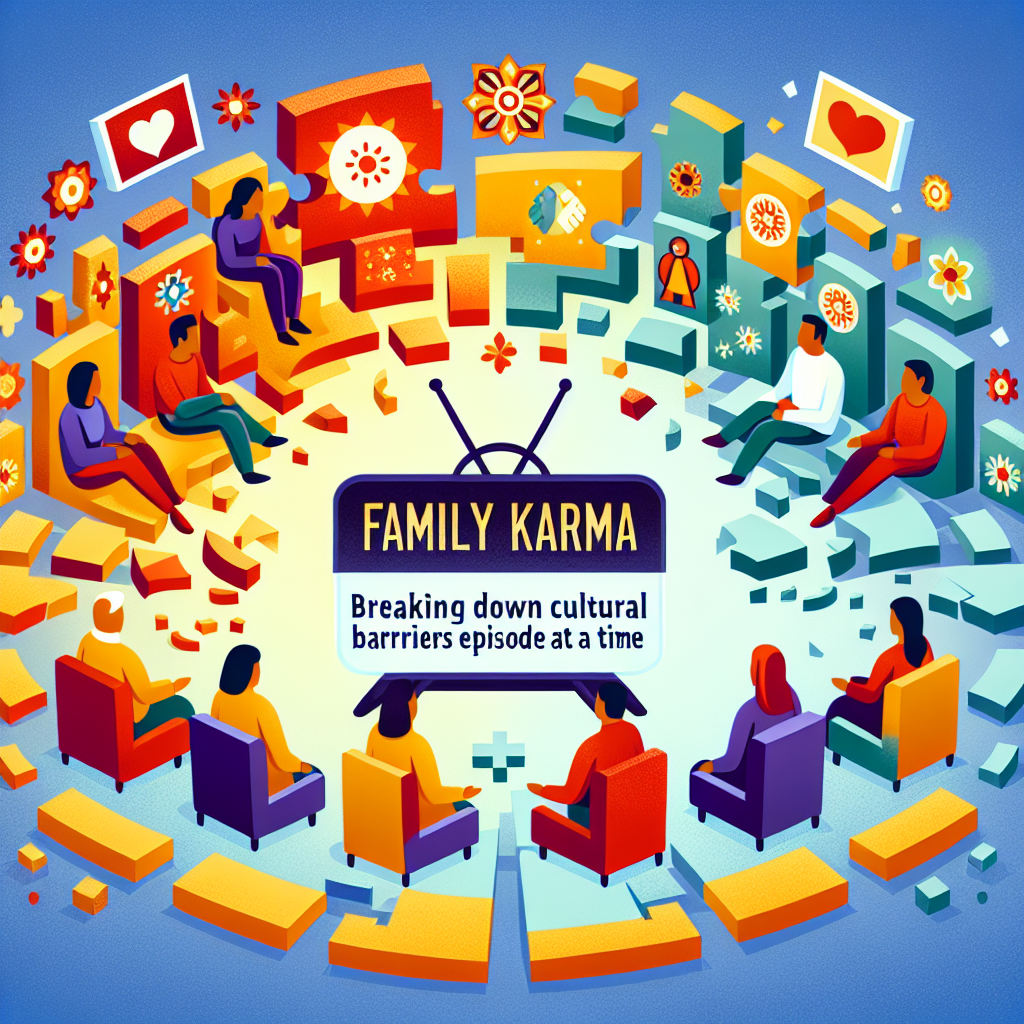Family Karma: Breaking Down Cultural Barriers One Episode at a Time
In a media landscape that increasingly embraces diversity and inclusivity, one reality show stands out for its unique representation of a vibrant cultural community: Family Karma. Premiering in March 2020 on Bravo, this series follows the lives of a group of Indian-American friends living in Miami, a melting pot of cultures. By documenting their individual stories, vibrant friendships, and family dynamics, Family Karma navigates complex cultural nuances while also tackling common themes of love, acceptance, and generational differences.
Cultural Representation
Understanding the significance of Family Karma requires recognizing its role as a cultural narrative. For many viewers, particularly those of South Asian descent, the show serves as a bridge connecting the traditional cultural values of their heritage with the modern realities of American life. The cast members embody the duality of living between two worlds—the expectations of their families and the freedom of contemporary western living.
From the outset, Family Karma showcases the rich tapestry of Indian culture, including traditions, festivals, and family gatherings, which resonate deeply within the South Asian community. Yet, rather than presenting a monolithic view, the showmasterfully illustrates the diversity within this community. Each cast member brings their individual experiences, challenges, and cultural perspectives to the forefront, thereby breaking down stereotypes and misconceptions.
Themes of Identity and Acceptance
One of the most compelling aspects of Family Karma is the exploration of identity. The cast—comprised of young adults navigating love, careers, and family pressure—mirror the struggles of many in their twenties and thirties today. Nonetheless, their challenges are further complicated by cultural expectations, particularly surrounding issues like marriage and career choices.
For instance, the show often tackles the pressure of arranged marriages and parental expectations. Characters like Vishal and Risha openly discuss their familial burdens regarding relationships, illuminating the tension between wanting to adhere to cultural expectations and pursuing personal happiness. Similarly, cast member Anisha offers unique humor in her conflicts about being single, as she navigates familial pressures while trying to embrace her individuality.
At the heart of these narratives lies a willingness to challenge outdated norms. Family Karma resonates particularly with younger audiences interested in redefining what it means to embrace their heritage while also living authentically. The show delivers powerful messages about the importance of self-acceptance and the ongoing journey of understanding one’s cultural identity.
Breaking Generational Barriers
The generational divide is another prominent theme in Family Karma. As the younger generation grapples with their cultural roots, they also face the inevitable tensions that arise when family traditions clash with modern influences. This dynamic is vividly portrayed through the interactions of the younger cast members with their immigrant parents and grandparents.
One standout moment occurs when the cast discusses their struggles with communication with their parents, many of whom have stringent views rooted in their upbringing. By depicting such candid conversations, Family Karma effectively highlights how misunderstandings can lead to familial discord, often sparked by a lack of cultural context.
Additionally, older family members often reveal their own vulnerabilities and fears, humanizing them in ways that prompt audience empathy. This creates a nuanced portrait of family life that emphasizes love and respect while still recognizing the friction that generational gaps can create.
Humor and Heart
The lighthearted humor and camaraderie among cast members significantly enhance the viewing experience of Family Karma. The friendships depicted in the series are characterized by genuine warmth, laughter, and sometimes playful rivalry. Whether it’s through shared experiences in Miami’s nightlife or competing in family obligations, the interplay between the characters exudes authenticity.
By using humor as a tool, the show allows tough conversations about cultural identity and personal struggles to feel relatable and digestible. This narrative choice ultimately leads to a sense of hope for viewers, demonstrating that love, understanding, and acceptance can triumph over societal pressure.
Impact on Representation in Media
As a show centered on South Asian lives, Family Karma contributes to the ongoing dialogue about representation in mainstream media. Historically, South Asians have been depicted through limited and often problematic lenses in Western narratives. Family Karma counters these portrayals, providing a space where South Asian voices are given agency and visibility.
The show’s success demonstrates that audiences crave genuine stories that reflect the complexities of diverse cultures. By revealing the real-life struggles and triumphs of its cast, Family Karma paves the way for other networks to explore more authentic narratives, fostering an appetite for further diversity in television programming.
Community Reactions and Audience Engagement
The impact of Family Karma extends beyond the screen, creating a community among viewers who resonate with the characters’ experiences. Social media platforms buzz with discussions, memes, and fan accounts dedicated to dissecting episodes and celebrating representation. Many viewers feel seen for the first time, voicing their journeys and challenges.
The camaraderie among cast members extends into these discussions, with the community often reflecting on personal anecdotes in response to the themes explored in the show. The engagement reflects a broader cultural dialogue, bridging gaps between generations and enabling conversations that transcend geographical boundaries.
Conclusion
Family Karma serves as an essential landmark in the ongoing evolution of cultural representation in reality television. By presenting stories that resonate deeply with both South Asian viewers and broader audiences, the series breaks down cultural barriers one episode at a time. Through its dynamic blend of humor, heart, and confrontation of societal norms, the show redefines what it means to be a South Asian in contemporary America while simultaneously celebrating the richness of cultural heritage. As Family Karma continues to air, its influence will undoubtedly inspire more authentic narratives across mainstream media.
FAQs About Family Karma
Q: What is Family Karma about?
A: Family Karma is a reality television series that follows a group of Indian-American friends living in Miami as they navigate their cultural identities, family dynamics, and friendships.
Q: When did Family Karma premiere?
A: The series premiered on March 8, 2020, on Bravo.
Q: Who are the main cast members?
A: The primary cast includes Vishal Parvani, Risha Nanda, Amrit Kapai, Monica VasAND, Anisha Ramakrishna, and Brian Benni.
Q: Is Family Karma scripted?
A: As a reality show, Family Karma captures real-life events and interactions, but like many reality shows, there may be production influences in how scenes are edited and presented.
Q: What themes does the show explore?
A: The show explores themes of cultural identity, generational differences, love, family expectations, and friendship.
It seems like your message got cut off. Could you please provide more details or clarify what you’re looking for? Whether it’s a writing prompt, a question, or something else, I’m here to help!, #Family #Karma #Breaking #Cultural #Barriers #Episode #Time, #Family #Karma #Breaking #Cultural #Barriers #Episode #Time, 1734742821, family-karma-breaking-down-cultural-barriers-one-episode-at-a-time





